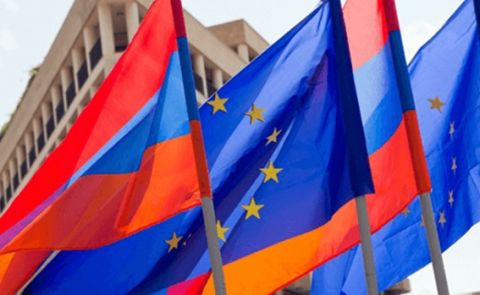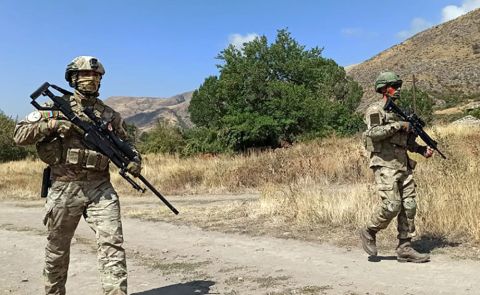
Ilham Aliyev's Message to Iran: "40 Million Azerbaijanis Living Outside Azerbaijan Deprived of Studying in Azerbaijani Language"

On November 11, the 9th Summit of the Organization of Turkic States was held in Samarkand, the Press Office of the Azerbaijani President reported.
President of the Republic of Azerbaijan Ilham Aliyev attended the event and made a speech at the Summit. Ilham Aliyev stated that strengthening relations with Member States of the Organization of Turkic States in all fields is one of the top priorities of Azerbaijan's foreign policy.
Hinting at Iran's controversial policy toward ethnic Azerbaijanis in Iran, he said, "The young generation of the Turkic world should have the opportunity to study in their mother tongue in the countries of their residence. Unfortunately, most of the 40 million Azerbaijanis living outside Azerbaijan are deprived of these opportunities. Education of our compatriots living outside Turkic states in their mother tongue should always be on the organization's agenda. Necessary steps should be taken in this direction." Aliyev stated: "The state of Azerbaijan pays special attention to protecting the rights, freedoms, and security of Azerbaijanis living abroad. We will continue our efforts so that our compatriots, who were separated from the state of Azerbaijan due to bitter fate, preserve our language, traditions, and culture, remain loyal to the ideas of Azerbaijanism, and never cut ties with their historic homeland."
Furthermore, he said that Turkish companies are involved in many infrastructure projects in this process as contractors. "I am also inviting the heads of other Turkic states to Karabakh and Eastern Zangazur. Using this opportunity, I express my gratitude to the President of Uzbekistan Shavkat Mirziyoyev, and the President of Kazakhstan Kassym-Jomart Tokayev for the school to be built by Uzbekistan and the creativity center to be built by Kazakhstan in the liberated Fuzuli district. These are the manifestations of brotherhood between Azerbaijani-Uzbek and Azerbaijani-Kazakh peoples," the head of Azerbaijan emphasized.
Regarding the Prague and Sochi meetings, he stated: "In October, Azerbaijan and Armenia officially recognized each other's sovereignty and territorial integrity by joint statements adopted in Prague and Sochi. It again demonstrates that the Karabakh conflict was left in the past." Azerbaijani President said, "The results of the Second Karabakh War create new opportunities for the region. Azerbaijan actively promotes the establishment of the Zangazur Corridor and carries out large-scale activities related to the corridor in its territory. All countries from the region will benefit from the opening of the Zangazur corridor."
Notably, according to a report by Caucasus Watch, after the Second Karabakh War, diplomatic relations between Azerbaijan and Iran became quite strained and remain difficult even today. After Iran conducted large-scale military drills on the Iranian-Azerbaijani border, opened an Iranian consulate in Kapan, Armenia, and Armenian Foreign Minister Ararat Mirzoyan announced an Armenian consulate in Azerbaijani-habited Tabriz, Azerbaijan’s rhetoric against Iran became more aggressive, both in the media and at the official level. Beginning in November, deputies of the Azerbaijani parliament, other officials, state TV channels, and public or state agencies began to bring the issue of "South Azerbaijan" [Azerbaijanis call northern provinces of Iran inhabited by ethnic Azerbaijanis with this term] into the political arena. There were also some unverified reports by Azerbaijani news outlets that leaflets with pictures of the President of Azerbaijan have been spread in Tabriz, Ardabil, and other cities of Iran.
Read also:
Ilham Aliyev on Iran's Threats to Azerbaijan, Russian Peacekeepers, and Relations with Armenia
See Also

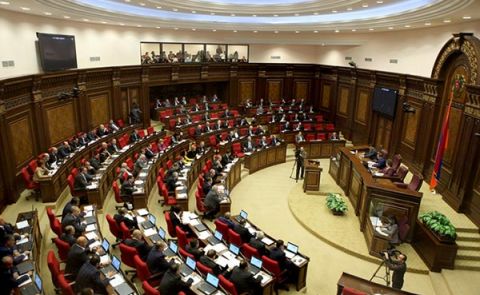
Heated Debate in Armenian Parliament Over Property Confiscations and Opposition Accusations
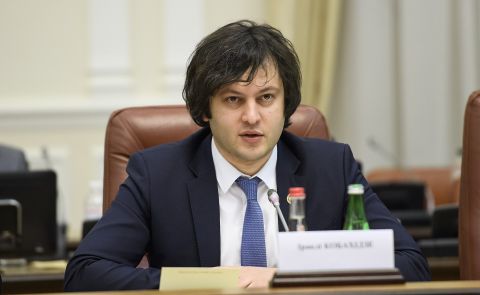
Georgian PM Addresses Trump in an Open Letter
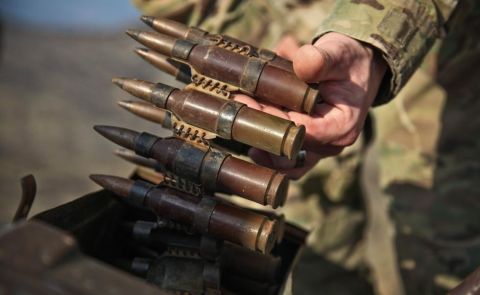
Weekly Brief on Military Situation in South Caucasus Countries (5–11 May)
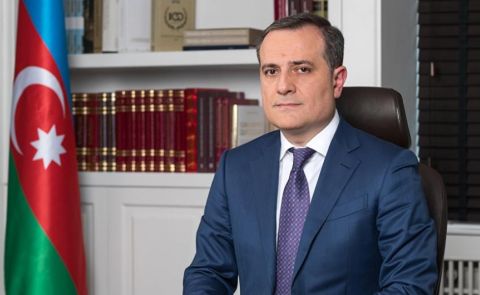
Bayramov Discusses Progress in Peace Talks, India-Pakistan Conflict, and Plane Crash Investigation
